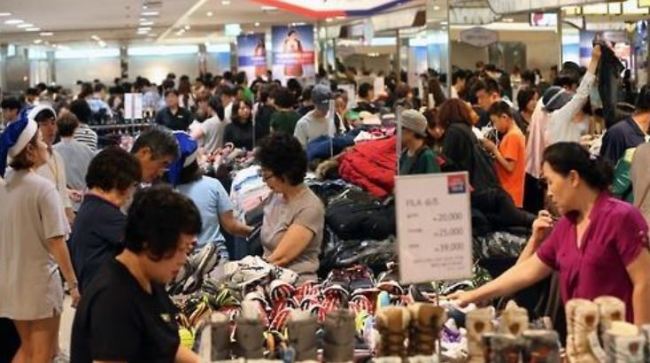South Korea’s low consumer prices will likely pick up in the second half of the year and reach near the central bank’s target rate mainly due to the recovering global economy and rising public utility rates, a report by the bank said Thursday.
According to the Bank of Korea monetary policy report submitted to the National Assembly, inflationary pressure from the demand side is rising throughout the world led by an upturn in the world economy.
The International Monetary Fund revised up its 2018 world growth forecast by 0.2 percent to 3.1 percent led by the brisk US economy.
Also, a strengthening US dollar and a weakening Korean won will contribute to pushing up import prices, while surging international crude prices will push up prices of oil-related products in Asia’s fourth-largest economy as it relies almost entirely on imports for its oil needs.
Prices of the benchmark Dubai crude soared to US$74.4 per barrel in May from $60 early this year, while hovering around $70 in June and this month.
Rising oil prices will also increase public utility rates, which have been under strict control by the government.
“In the latter half of the year, the upbeat inflation trend will expand and get closer to the annual target,” said the BOK in the quarterly report. “But we have to stay cautious due to a high degree of uncertainty going forward.”
The central bank has set its target inflation rate at 2 percent, but consumer prices have lagged far behind the goal for years. In 2015, consumer prices edged up a mere 0.7 percent and gained 1 percent the following year.
Experts noted that if the inflation goes up in the second half as expected, it will encourage the BOK to raise the policy rate in the coming months.
The BOK froze the key rate at 1.5 percent in its latest monetary policy board meeting last week, citing signs of an economic slowdown and low inflation.
As one dissident member voted for a rate hike, the market anticipates that the central bank may take rate-adjusting action at least once within the year.
The next rate-setting meeting is slated for Aug. 31. (Yonhap)


